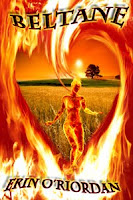Each End of the World By Heather Smith
Book Length: 52 pages
Publisher: Main Street
Blurb:
"Although Heather Smith's astonishing first book is located, mostly, in the conflagration of human meaning that was Bosnia in the1990's, it's a collection that, in an unforgettable way, examines the terrifying bitterness and danger of contemporary life, when There are flashes of light strobing from the windows/ of the Holiday Inn.../ They are shooting at us from the Holiday Inn. What does it mean, now, to give witness? The language of devastation courses through the book, and seems to course through the poet herself. Smith's sweeping current of voices is somehow both individual and a great collective outcry. Each End of the World is a devastating performance."
Review:
Each End of the World was written by Heather Derr-Smith (credited on this book as Heather Smith) and published by Main Street Rag in 2005. The poems in this anthology have appeared in literary magazines including The Chattahoochee Review, The New York Quarterly, and Pleiades.
This isn’t an easy book to read. Most of the poems (probably all of them except “Mt. Olivet Old Regular Baptist Church Yugoslavia Sarajevo Bosnia and Herzegovina Paris , Berlin Prague London Dublin Sarajevo
In 1991, Croatia Italy Slovenia Italy Yugoslavia Croatia Netherlands Bosnia and Herzegovina Croatia Serbia
The assault on Sarajevo
Many Americans had, and still have, a hard time picturing the Bosnian people in human terms. I went to high school with Boris, a teenager from Sarajevo U.S. Serbia Split , Croatia Yugoslavia
Even if you can’t put an individual face to the war, though, consider this: many Serbian people opposed the violence, and there were also atrocities on the side of the Muslim-Croatian coalition. However, the majority of the victims of the war were Muslims. In some Muslims villages, the men were all lined up and shot and then buried in mass graves. Osama bin Laden and al-Qaeda have used the Bosnian war as an example of the West’s hostility to Muslims and as incitement to violence against the West. The Bosnian war was an unthinkable human tragedy, but it also made the world less safe for everyone.
For all these reasons and for its own poetic merits, Heather Smith’s Each End of the World deserves a place on your bookshelf. The title refers to the moments in time when each victim of the war had his and her world destroyed. That destruction may have come through death, living through trauma, or losing one’s soul by victimizing another. The speakers in these poems are young and old, male and female, and from all sides of the war. The poems are full of violence, but they also incorporate snatches of Bosnian folk songs. They juxtapose beauty and horror, the everyday and the nightmarish. The poems will be haunting, but don’t be tempted to look away. We all need to remember this like we remember the Holocaust, so nothing so evil can be allowed to happen again.
Reviewed By Erin O’Riordan



No comments:
Post a Comment